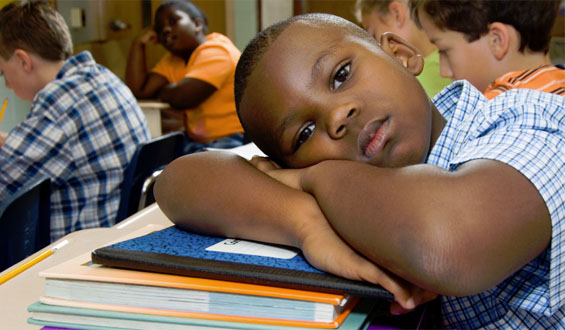Because I’m Black
I grew up in a community where the majority of people were minorities. I had an eighth grade teacher whose motto was, “Take what you need, need what you take.” He told us that everything we needed to learn from school we learned in kindergarten – don’t steal, treat others the way you want to be treated, and cooperate. This teacher had a fundamental impact on my schooling and my life, and as a teacher now, I think back to his lessons as I try to impart wisdom on my students. But, I have experienced friction in my experiences as a teacher, especially when I am educating black boys. If you think you know where I am going next – you’re wrong.
I have had friction regarding educating black boys from other teachers. The way I communicate with them is a tad bit different than the way some other teachers do. These kids may share the commonality of having a similar shade of skin, residing in the same residential neighborhoods I once did, or even liking the same music. But that is where the similarities usually cease. The reason why I get along with these students better is because we both understand a shared culture – urban culture. But you don’t have to be from the “hood” to understand and validate positive urban culture.
Other teachers will come tell me the reason why I connect with black students is simply because I am black. The fact that I connect equally with white students is completely ignored by them. In fact, their argument collapses behavioral attitudes into fictitiously self-generated cultural myths. The fact that some teachers would hold an opinion that black teachers connect better with black students and leave that belief to idly dangle in the air indicates precisely what is wrong with how black students, and black boys in particular, are being educated.
I don’t connect with black boys because I too am black. I connect with black boys because I understand that their skin tone is not the determining factor in their potential, interests, or outputs. In fact, we connect because we both share this sentiment. Skin color is not mute, but it does not impede. Quite simply, it is not because I am black – it is because I care.
My eighth grade teacher connected with us, us black kids. He was an Irish man with a long white beard. Every “black” kid in the school loved, protected and respected him. He connected with us because he spoke to us without the veil of predetermined judgment. Don’t take this sentence out of context, but he taught us like we weren’t black (that sentence alone, I will acknowledge, is deeply troubling and in need of critical dialogue). Black boys don’t need a black teacher to guide their ways (although they do need to see more black male teachers). Black boys need love. So when I teach black boys and connect with them – it is not because I am black. It is because I care.
[share title=”Share this Post” facebook=”true” twitter=”true” google_plus=”true”]

